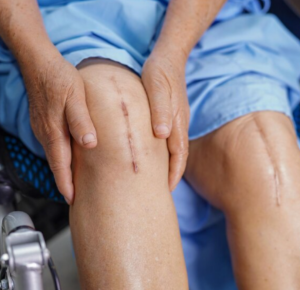1. Introduction to Post-Surgery Dysphoria in Dogs
Dysphoria in dogs after surgery is a state of unease or discomfort that some dogs experience as they recover from anesthesia. This condition can manifest as restlessness, whining, or confusion. Understanding the duration and management of post-surgery dysphoria is essential for pet owners to help their dogs recover comfortably.
2. What is Dysphoria in Dogs?
Dysphoria is a state of anxiety, agitation, or distress. In dogs, it can occur after surgical procedures due to the effects of anesthesia and pain medications. Recognizing the signs of dysphoria helps pet owners differentiate it from normal post-surgery behavior and address their pets’ needs effectively.
3. Causes of Dysphoria in Dogs Post-Surgery
Several factors contribute to dysphoria in dogs after surgery. These include the residual effects of anesthesia, pain, unfamiliar sensations, and the stress of the surgical environment. Each dog’s response to surgery can vary, influencing the severity and duration of dysphoria.
4. Common Signs of Dysphoria in Dogs
Identifying dysphoria involves observing your dog’s behavior. Common signs include restlessness, excessive vocalization, pacing, drooling, and difficulty settling down. Some dogs may also show signs of confusion or disorientation, which can be distressing for both the pet and the owner.
5. Duration of Dysphoria After Surgery
The duration of dysphoria in dogs varies. It typically lasts from a few hours to a couple of days post-surgery. Most dogs begin to return to their normal behavior within 24-48 hours. However, the exact duration depends on factors such as the type of surgery, the dog’s age, and overall health.
6. Managing Dysphoria in Dogs
Managing dysphoria involves creating a calm and comfortable environment for your dog. Provide a quiet space with minimal distractions and gentle reassurance. Sometimes, additional pain relief or anti-anxiety medications prescribed by a veterinarian can help ease your dog’s discomfort.
7. Pain Management and Its Role in Dysphoria
Effective pain management is crucial in reducing dysphoria. Unmanaged pain can exacerbate distress and prolong recovery. Veterinarians may prescribe pain medications to help manage discomfort and improve your dog’s overall recovery experience.
8. The Role of Anesthesia in Post-Surgery Dysphoria
Anesthesia plays a significant role in post-surgery dysphoria. The lingering effects of anesthesia can cause confusion and agitation. Understanding how anesthesia affects your dog and discussing concerns with your veterinarian can help mitigate these effects.
9. Importance of Monitoring Your Dog Post-Surgery
Close monitoring of your dog after surgery is essential. Pay attention to any changes in behavior, appetite, or physical condition. Early detection of prolonged dysphoria or other complications can prompt timely veterinary intervention and improve recovery outcomes.
10. Creating a Comfortable Recovery Space
Setting up a comfortable recovery space for your dog is important. Ensure it is quiet, free from loud noises, and has a cozy bed. Familiar items like toys or blankets can provide comfort and security, helping to ease post-surgery dysphoria.
11. Gradual Reintroduction to Normal Activities
Gradually reintroducing your dog to normal activities helps manage dysphoria. Allow your dog to rest and recover fully before resuming regular exercise or play. Gradual increases in activity levels prevent overstimulation and reduce anxiety.
12. Hydration and Nutrition Post-Surgery
Proper hydration and nutrition are crucial for recovery. Encourage your dog to drink water and offer small, easily digestible meals. Keeping your dog well-nourished supports healing and can alleviate some symptoms of dysphoria.
13. Signs of Improvement to Look For
Watching for signs of improvement helps gauge recovery progress. Signs include increased interest in surroundings, improved appetite, and a return to normal behavior patterns. Positive changes indicate that your dog is recovering well from dysphoria.
14. When to Contact Your Veterinarian
Knowing when to contact your veterinarian is important. If dysphoria persists beyond a couple of days, or if your dog shows signs of severe distress, pain, or other complications, seek veterinary advice immediately to ensure proper care.
15. The Role of Anti-Anxiety Medications
In some cases, veterinarians may prescribe anti-anxiety medications to help manage dysphoria. These medications can help calm your dog and reduce anxiety, aiding in a smoother recovery process.
16. Understanding Your Dog’s Individual Needs
Each dog is unique, and their response to surgery and recovery can vary. Understanding your dog’s individual needs and preferences helps tailor post-surgery care to provide the best possible support and comfort.
17. The Impact of Surgery Type on Dysphoria
The type of surgery your dog undergoes can influence the extent and duration of dysphoria. Major surgeries or those involving significant pain may result in more pronounced dysphoria compared to minor procedures.
18. Behavioral Changes Post-Surgery
Behavioral changes post-surgery are common. Your dog may exhibit temporary changes in behavior, such as increased clinginess or irritability. These changes are usually short-lived and resolve as your dog recovers.
19. The Importance of Patience and Compassion
Patience and compassion are key during your dog’s recovery. Providing gentle reassurance, maintaining a calm demeanor, and offering consistent care help your dog feel secure and supported as they recover from surgery.
20. Long-Term Effects of Dysphoria
In most cases, dysphoria is a temporary condition with no long-term effects. However, prolonged dysphoria can impact your dog’s recovery. Addressing it promptly and effectively ensures a smoother and more comfortable recovery experience.
21. The Role of Post-Surgery Follow-Ups
Regular post-surgery follow-ups with your veterinarian are crucial. These appointments allow the vet to monitor your dog’s recovery, address any ongoing issues, and adjust treatment plans as needed to ensure optimal recovery.
22. Importance of Owner Education
Educating yourself about post-surgery care and dysphoria is vital. Understanding what to expect and how to manage potential challenges empowers you to provide the best care for your dog, promoting a faster and more comfortable recovery.
23. Support Networks for Pet Owners
Support networks, such as online forums or local pet owner groups, can provide valuable advice and encouragement. Sharing experiences and learning from others who have gone through similar situations can be reassuring and helpful.
24. Preparing for Future Surgeries
If your dog requires future surgeries, preparing in advance can help manage dysphoria more effectively. Discussing concerns with your veterinarian and implementing lessons learned from previous experiences can improve outcomes.
25. Conclusion
Understanding and managing dysphoria in dogs after surgery is crucial for their recovery. By recognizing the signs, providing appropriate care, and seeking veterinary advice when needed, pet owners can help their dogs recover comfortably and quickly from surgical procedures.



